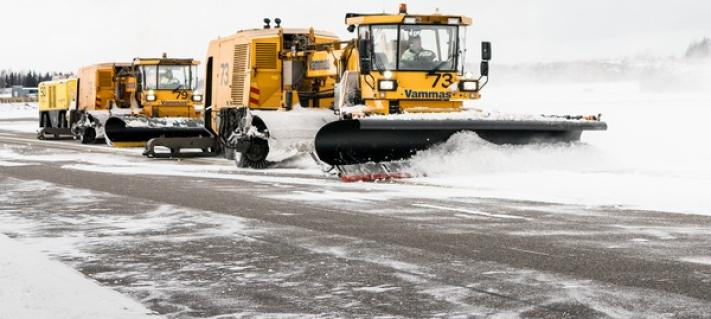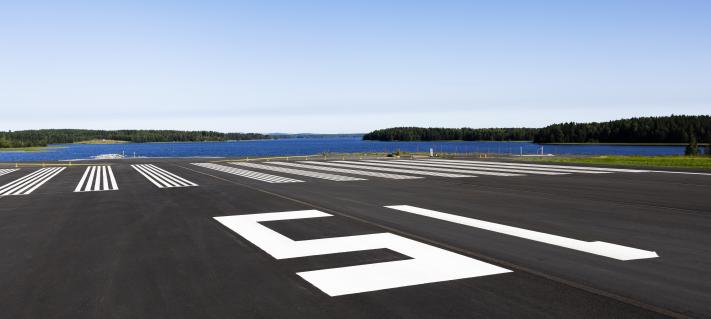The development programme will be carried out between 2014 and 2020 and the focus will be on increasing check-in and transit travel capacity and on improving traffic arrangements. The aim is to ensure that Helsinki Airport will be able to maintain its strong competitive position in transit traffic between Europe and Asia.
“Passengers do not want any hitches and they expect quick transfers, high-quality services and a wealth of experiences. In a highly competitive environment, the success of an airport depends on these factors, and they must also be the focus areas at Helsinki Airport. One in every three passengers choose their flight routes on the basis of the transit airport,” says Kari Savolainen, Finavia’s CEO.
Previous investments have turned Helsinki Airport into a major transit hub between Asia and Europe and helped to increase its annual capacity to 15 million passengers. However, an increase in air traffic will cause congestion at the airport in the coming years.
“It is estimated that about 20 million passengers will be using Helsinki Airport in the early 2020s. This means that we need bigger facilities and that Helsinki Airport must be able to keep up with the demands and improve its processes. Maintaining our principal airport as a leading transit hub will ensure that Finns will continue to have extensive flight connections and it will also boost the competitiveness of the Finnish economy,” says Savolainen.
Work will start in 2014 – cost estimated at 900 million euros
The Helsinki Airport development programme 2014–2020 will cost about 900 million euros and it is expected to have an employment impact of 14,000 person-years. When the number of passengers using the airport reaches 20 million during the next ten years, there will also be about 5,000 permanent jobs in different companies operating at the airport.
“Passenger expectations have priority in all development work taking place at our airport and capacity increases will be based on genuine demand for air travel,” says Ville Haapasaari, the director of Helsinki Airport.
The development programme will start in Terminal 2 with improvements in the check-in area. At the same time, more detailed design work will start and final decisions on priorities concerning the new facilities will be made.
Construction of the new infrastructure is expected to start in 2015. One option being considered by Finavia is the construction of a satellite terminal adjacent to Terminal 2. Finavia is also planning to extend Terminal 2 into the areas of car parks P1 and P2.
An infusion of capital in which the Finnish government will invest a total of 200 million euros in Finavia will allow the company to start the development programme. It will also enable Finavia to strengthen its solvency ratio and make it better placed to borrow money.
“The new capital will be used for the development of Helsinki Airport so that we can repay the Finnish government its investment by means of profits generated by our business. At the same time, we will also be able deal more effectively with the repair backlog at the most important provincial airports,” notes Savolainen.
In addition to the development programme, Finavia will carry out repairs and maintenance at Helsinki Airport, at its most important provincial airports and in air navigation services. The work, which is expected to cost about 100 million euros, will include paving of runways and terminal maintenance.
What will be going on at Helsinki Airport during the next few years?
Improvements in check-in and security control capacity in Terminal 2
- additional security check capacity
- development of the Congress area
- automation of check-in and baggage drop
- scheduled for 2014
Improvements in transit traffic capacity
- more places for wide-body aircraft in non-Schengen traffic
- potential extension of the terminal by building a satellite terminal
- can be implemented in stages in 2015–2020 in accordance with the demand
Improving the flow of departures and arrivals in Terminal 2
- extending Terminal 2 into areas in front of it and building more parking capacity
- single area for check-in, security control and baggage drop
- better transport arrangements
- option for additional commercial services
- tentatively scheduled for 2017–2019 (depending on the timing of the other projects)
Finavia will do its utmost to minimise any inconvenience caused by the work. Regular information on the progress of the work and its effects will be provided on Finavia’s website and through other media.
The extension of the airport after 2015 will not have any effect on the existing aircraft noise zones because the changes are not expected to have any impact on the manner in which the runways are operated.


